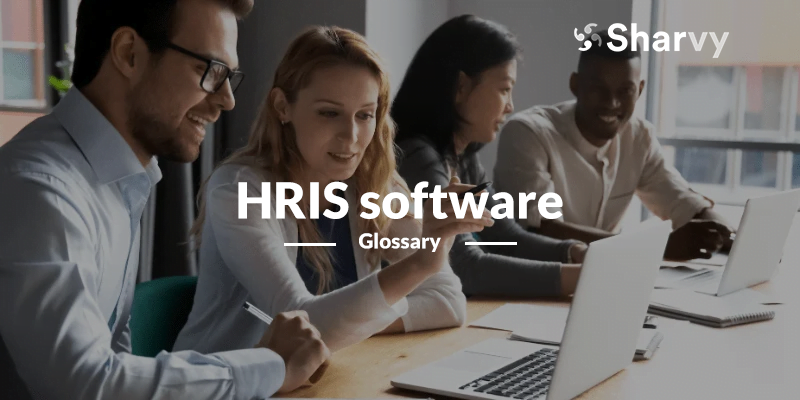What is HRIS software? – Definition
The acronym HRIS stands for “Human Resources Information System“. It is software that combines all the data about a company’s employees. This data is no longer scattered but grouped in a single software package, which enables the HR department to avoid recurring multiple-entry errors.
HRIS software, therefore, includes a wide range of functions, to mention a few :
- Payroll management : the HRIS software centralizes all the information needed to create payslips and automate this task. This includes the hours worked, days of absence, RTT, bonuses, overtime, etc. Employees can access this information whenever they need to. Employees can access this information whenever they wish in a digital safe.
- Schedule management : HRIS software can also automate the distribution of the number of days’ leave for each employee based on their employment contract and the collective agreement in force. At the same time, employees can self-declare their absences (teleworking, illness, such as the marriage or death of a close relative) via an online space. All that is required is proof of absence.
- Managing social benefits : is another area that companies must consider. As a result, most HRIS software includes a module that facilitates the management of benefits, whatever their nature (health insurance, alimony, etc).
- Recruitment management : HRIS software can also centrally and automatically manage the various stages of your recruitment process (publication of job offers, centralization of applications received, monitoring of applications and pre-selection of candidates, creation and sending of the DPAE, which includes all the information available in the HRIS, etc.).
Ultimately, HRIS software saves the Human Resources Department (HRD) a lot of time by automating many time-consuming tasks. This allows them to concentrate on other, higher-value tasks.
Parking Management solution & HRIS software : what is the advantage of HRD synchronizing data from these two systems?
As you can imagine, the Human Resources Department (HRD) often faces many time-consuming administrative tasks. But in addition to these tasks, and in many companies, the HR Department is also responsible for ancillary tasks such as managing parking spaces and managing the company’s various resources (materials and equipment).
On a day-to-day basis, this management can be complex. That’s why our Sharvy Parking Management application integrates via API with your HRIS software (Lucca, Kelio, Horoquartz, and many others) to save your HR department and your employees from double entries and potential errors.
- How does it work ? Previously, employees who did not have a parking space could not park in a named space, even if the employee was absent for the day (teleworking, business travel, illness, etc). Thanks to this API, Sharvy communicates with your HRIS software, automatically releasing and making available to employees who do not have a parking space the space of the employee who does have one during their absence (only).
- The benefits ? By connecting these two systems, HR managers benefit from a harmonious synchronization of employee schedules to improve company car park management & meet the parking needs of more employees. At the same time, thanks to this API, HR managers can ensure that access permissions to parking areas are aligned with the information available in the HRIS. This correlation guarantees enhanced security and transparent management of access rights, reducing the risk of abuse and inconsistencies in the allocation of parking spaces.
What are the advantages of HRIS software for the company and its employees?
There’s no doubt about it, integrating HRIS software brings substantial benefits to the company and its employees. Here are the main advantages :
- Easier administrative processes : HRIS simplifies administrative processes for your employees by giving them easy access to their personal information, submitting holiday requests, consulting their payslips, etc. This reduces the administrative burden and improves the employee experience.
- Improved productivity : by facilitating access to information, the HRIS helps to optimize employee productivity. For example, HRIS enables employees to manage their schedules and performance more effectively by automating holiday request processes and providing tools for monitoring objectives.
- Regulatory compliance and risk reduction : An HRIS integrates legal and regulatory developments in human resources management, enabling the company to remain compliant with the law and reduce the risk of non-compliance and potential penalties.
- Greater transparency and communication : By providing transparent access to company policies, employee benefits, professional development opportunities, etc. So, HRIS promotes communication and transparency between your company and your employees.

